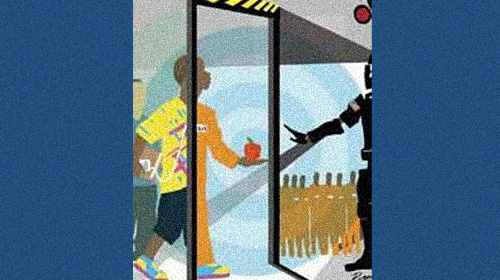
At the beginning of the first Senate hearing on the Sandy Hook Elementary School shootings, Sen. Dick Durbin (D-IL) instructed those in the hearing room to stand if they had been affected by gun violence. As nearly everyone in the packed hearing room, including several Senators, stood in silence, the powerful tone was set for the debate over what to do next.
For several months, I have attended every event and hearing on Capitol Hill regarding the Senate's response to the Newtown shootings. I saw the father of a slain first grader whose uncontrollable sobbing at a Judiciary Committee hearing left everyone in the room quiet and still. I witnessed testimony from a doctor who struggled to retell the story of removing bullets from the heads of five-year-olds. And I saw incredible passion and a sense of purpose from both sides of the aisle.
With that in mind, the Senate voted yesterday to move forward with debate on the proposed gun control legislation. The base bill contains three separate components:
- Harsh penalties for fraudulently buying a gun for another person;
- Increased funding for more security procedures and equipment in schools; and
- An expansion of gun background checks.
The next step in the process will be debate and a window for Senators to introduce amendments to the existing legislation. Dozens of amendments are expected, ranging from an assault weapons ban to limiting violence in video games. As we previously mentioned, the ACLU has concerns about the civil liberties implications of several possible amendments we are likely to see in the coming weeks.
Well-meaning policymakers might assume that adding more police or school resources officers makes students safer, but experience demonstrates otherwise. Some senators will likely introduce amendments that would increase funding for placing law enforcement in schools or even arming school personnel. If we're going to make sure that schools are sanctuaries of education and not prison fortresses, we need to foster understanding and trust between students and teachers. Placing law enforcement of any kind in schools can tend to foster a culture of fear and often results in punishing the kids we're trying to protect. Without critical safeguards–likely to be omitted from any proposals in the current debate, such a system tends to push more kids into the criminal justice system for things that used to be handled wholly within the school administrative system.
We also have concerns about the privacy implications of the bipartisan universal background check proposal. Possible amendments could make it easier to create huge databases of sensitive health records in order to conduct a background check. If our country is going to have effective background checks, they must be conducted in a way that protects sensitive health records and does not discourage people from seeking drug treatment.
Although none have been proposed so far, we're also on the lookout for increased criminal penalties that create new mandatory minimums, which wrest control from the hands of judges and impose one-size-fits-all sentences. Overly harsh mandatory minimum sentences are one of the primary reasons the federal prison population has in the last several decades.
The legislation still faces a long road ahead before it becomes law. The ACLU will continue to press Congress to make America a safer place for our children without creating unintended consequences for our civil liberties. We need to create a safe and healthy environment for our children to learn and grow, which includes funding for education, positive behavior support programs, improved access to mental health resources, and programs that guide at-risk young people away from criminal action.
As we work to prevent more tragedies like Sandy Hook, Aurora, and Tucson, Congress has a responsibility to protect our children's civil liberties, for now and for the future.
Learn more about gun legislation and other civil liberty issues: Sign up for breaking news alerts, , and .
